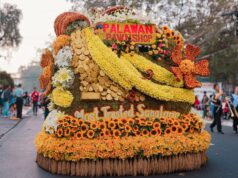CITY OF SAN FERNANDO – Central Luzon is now classified as a “hotspot” for wildlife trafficking in the Philippines.
The regional office of the Department of Environment and Natural Resources (DENR) has confirmed this, noting that since 2016, at least 69 wildlife animals, including four “vulnerable” pangolins and three spitting cobras, were turned over to the department.
The pangolins and spitting cobras were confiscated by the National Bureau of Investigation (NBI) from a Chinese smuggler at the Clark International Airport.
The DENR said in a report that pangolins and spitting cobras are in the “red list” of those threatened by extinction as listed by the International Union for the Conservation of Nature (IUCN).
The other animals surrendered to DENR also included Philippine eagles, reticulated pythons, grass owls and soft shell turtles, among other species.
The regional DENR said it has “strengthened wildlife enforcement efforts by enhancing the skills and knowledge of at least 100 DENR field personnel and partner enforcement officers from other national government agencies, private institutions and the academe on the enforcement of wildlife law.”
Arthur Salazar, DENR deputy director for technical services, stressed that “wildlife law enforcement plays a crucial role in ensuring the conservation and sustainable use of wildlife resources since illegal wildlife trade remains to be one of the primary threats to the region’s abundant biodiversity.”
He said, last March, the DENR entered into a memorandum of agreement with the Clark International Airport Corp. to operationalize a Wildlife Traffic Monitoring Unit (WTMU) that will effectively monitor and address the cases involving the transport or trading of wildlife resources.
“Our WTMU is a fundamental element to combat illegal wildlife trade in the region. Apart from sustaining our ecological balance, it is likewise important to our national security, since more often than not, wildcaught animals in trade are also known vectors of diseases which pose risk to human health,” he added.




